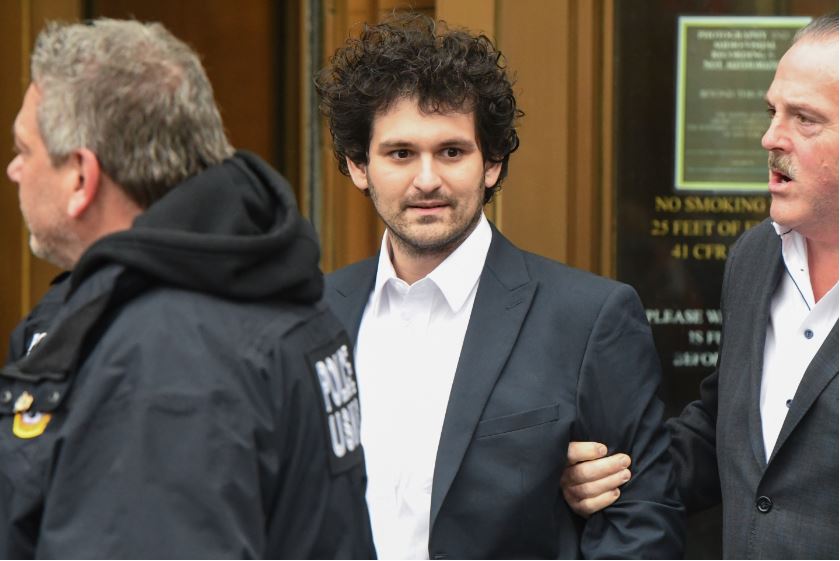
On Tuesday, the cryptocurrency case brought by Sam Bankman-Fried was assigned to a federal judge in Manhattan known for making quick decisions and having a no-nonsense attitude during his three decades of overseeing numerous high-profile cases.
After the original judge recused herself from the case because her husband was employed by a law firm that had represented parties involved with Bankman-Fried’s defunct cryptocurrency exchange FTX, the case was assigned to Judge Lewis A. Kaplan.
After being detained in the Bahamas for two weeks, Bankman-Fried was extradited to the United States last week to face charges of fraud and theft related to his FTX trading platform.
On Thursday, he was released from custody in exchange for a $250 million personal recognizance bond and allowed to return to his parents’ home in Palo Alto, California. He was also given an electronic monitoring bracelet to help law enforcement keep tabs on his whereabouts.
Kaplan, now 78 years old, was nominated to the federal bench by President Bill Clinton in 1994 and has served as a senior judge in Manhattan since 2004.
Since then, he has presided over a number of high-profile trials and notable financial cases, including the first federal prosecution for bitcoin securities fraud. Kaplan imposed an 18-month prison term on the defendant.
In 2014, he prevented a $9 billion judgment against Chevron in Ecuador for rainforest damage from being collected in the United States, arguing that the lawyers involved had tainted an otherwise honorable pursuit with illegal and wrongful conduct.
Also in 2012, he waited to accept a banker’s guilty plea because he wanted written explanations from prosecutors about why the banker was being allowed to plead guilty to a misdemeanor bank gambling charge instead of a felony.
Over the years, Kaplan’s temper has flared, and lawyers on both sides have felt his wrath.
In 1997, he criticized the government’s immigration department (then known as the United States Immigration and Naturalization Service) for taking too long to process an asylum application.
A glacier moving uphill moves faster than this, he snarled.
“The INS has in the three years I’ve been on the bench acquitted itself in disastrous fashion more than once, but this one takes the cake and I’m not going to stand for it much longer,” he said, calling the agency’s actions “absolutely outrageous.”
In 2000, he issued a ruling in favor of the film industry that effectively shielded DVDs from being copied on personal computers.
The assassination of a political figure is not purely a political statement, and neither is computer code, he argued.
Kaplan recently presided over the civil trial of actor Kevin Spacey this past fall. Spacey was accused by a fellow actor of trying to molest the actor when they were both 14 years old, in Spacey’s apartment following a party. Juries sided with Spacey, deciding that actor Anthony Rapp failed to prove his case.
E. Jean Carroll, a former advice columnist for Elle magazine, is currently suing former President Donald Trump in a civil case presided over by Kaplan. According to Carroll, Trump raped her in the dressing room of a high-end department store in Manhattan sometime around 1995 or 1996. To be clear, Trump says he is innocent of the charges. For the month of April, a trial has been set.
The famous judge also presided over a case involving allegations of sex abuse by an American woman against Britain’s Prince Andrew, which was settled earlier this year. Andrew said he had no intention of smearing the woman’s reputation and agreed to make a charitable contribution as part of the settlement. Kaplan had previously rejected Andrew’s request to dismiss the lawsuit before the two sides settled.
For their roles in a college basketball scandal in which a former Adidas executive and two others paid families of top college basketball recruits to play for schools sponsored by the shoemaker, Kaplan handed down prison terms to three men in 2019.
Kaplan presided over the trial that resulted in the life sentence of Ahmed Ghailani, a former Guantanamo Bay detainee, for his role in the 1998 plot to bomb the U.S. embassies in Tanzania and Kenya. Among the total of 224 victims, 12 were American citizens.
And in 2015, a judge handed Egyptian lawyer Adel Abdul Bary a 25-year prison term for his part in the attacks on U.S. embassies in Africa.
Kaplan handed down a life sentence to Sulaiman Abu Ghaith, Osama bin Laden’s son-in-law and al-spokesman Qaida’s following the September 11 attacks, in 2014.
Kaplan has also presided over the sentencing reduction motions of men convicted in the 1993 bombing of the World Trade Center, which killed six people and injured over a thousand.
Leave a Reply